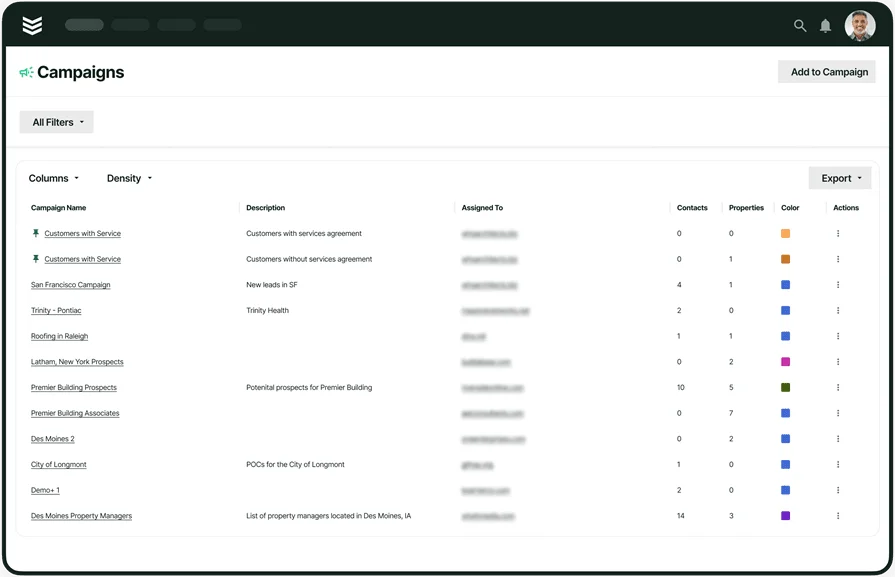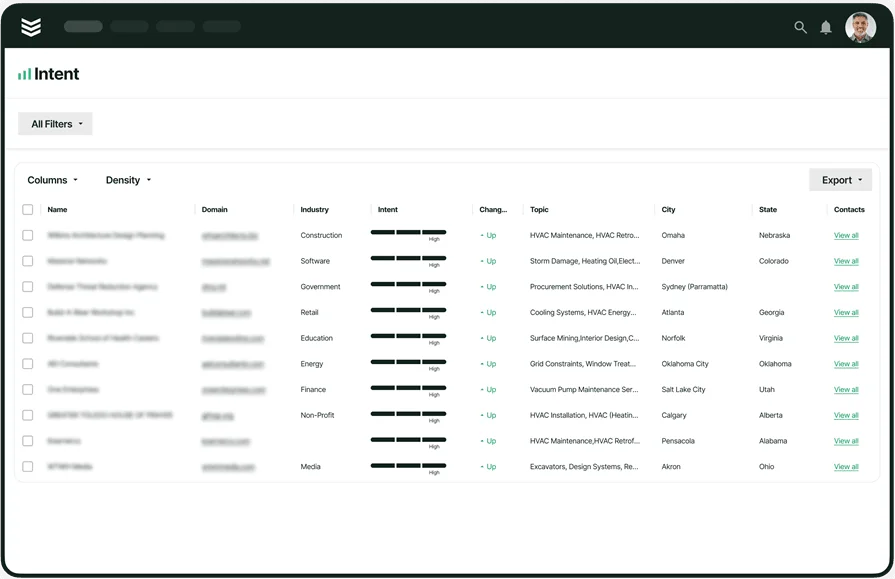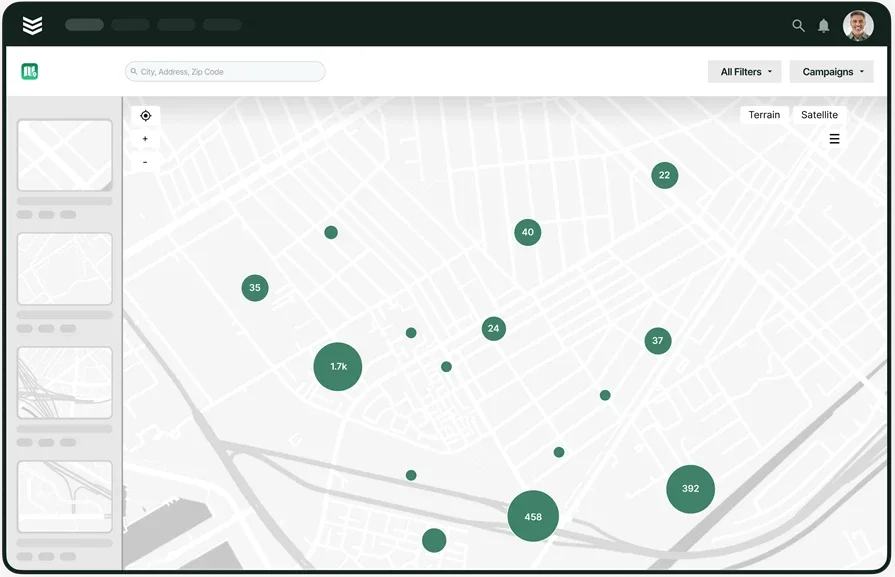In the electrical contracting industry, maintaining client connections is no minor challenge. Staying organized may often seem like an undertaking that ranges from tracking leads to guaranteeing repeat business. That’s where a CRM comes in—helping you centralize key customer details, streamline communication, and improve your overall workflow. But with so many options on the market, how do you find the one that’s best for your business? In this guide, you’ll learn more about:
- Choosing the CRM for electrical contracting
- 5 key features electricians should look for in a CRM software
- 8 best CRM for electrical contractors and electricians
- 5 benefits of using CRM for electricians
- 5 important CRM software FAQs answered for electrical contractors
Before diving into specific tools, it’s important to understand what makes a CRM valuable to your business. The right solution should align with your unique needs, whether that’s organizing customer data, managing projects, or handling invoicing. Let’s start by breaking down the key considerations for choosing the right CRM for electrical contracting.
Choosing the CRM for electrical contracting
Selecting the right CRM is essential for simplifying your operations and keeping your business running smoothly. For electrical contractors, it’s not just about storing customer data—it’s about finding a solution that integrates into your workflows and grows with your business. Here are some critical factors to think about when making your decision:
- Streamlining customer management — Are you currently able to track customer interactions, follow-ups, and project histories in one place?
- Compatibility with your existing workflows — Will the CRM complement how your team already operates, or will it require a complete overhaul of your processes?
- Scalability for future growth — As your business expands, will the CRM still meet your needs without requiring a major upgrade?
- Training and support options — Will your team be able to adopt the CRM quickly with the help of training resources or responsive customer support?
- Key features for electrical contractors — Does it include tools like scheduling, invoicing, or lead tracking that directly support your daily tasks?
The responses to these queries will direct you toward a CRM that genuinely improves your company rather than only fulfilling requirements.
5 key features electricians should look for in a CRM software
When choosing a system to optimize your CRM, it’s important to focus on features that simplify your daily operations and give you more control over your business. Below are five essential features that every electrician should look for in CRM software.
1. Real-time scheduling and dispatching
A CRM with real-time scheduling and dispatching helps you assign and manage jobs more efficiently. Features like a drag-and-drop field service scheduling tool allow you to rearrange tasks on the fly, ensuring technicians are dispatched to the right job sites at the right time. This minimizes delays, keeps customers satisfied, and helps you handle emergency calls with ease.
2. Advanced customer hierarchies
If you work with clients that operate across multiple properties or departments, look for a CRM that offers advanced customer hierarchy management. This feature consolidates all information under one profile, giving you quick access to contacts, service history, and job details. It’s a time-saver for managing large-scale projects or recurring service agreements.
3. AI-powered reporting tools
Comprehensive reporting tools are vital for gaining actionable insights into your business operations. A CRM with built-in analytics can track key performance indicators like job completion rates, revenue trends, and technician efficiency. These insights help you identify bottlenecks, optimize workflows, and make informed decisions to grow your business.
4. Technician-friendly mobile app
A CRM designed for field technicians should include a mobile app that offers real-time updates, job details, and checklists. This ensures that technicians have all the information they need at their fingertips, improving their efficiency and reducing miscommunication. A mobile-friendly field service app solution is especially critical for on-the-go teams.

BuildOps CRM features
We have all these features—and much more. See how it works.
5. Integrated task checklists
Task checklists integrated into your CRM help ensure nothing falls through the cracks. These checklists guide technicians through each job step by step, requiring them to document their work and even attach photos if necessary. This feature adds accountability and gives clients confidence in the quality of your service.
Other valuable features for CRM field service software
- Invoicing and Payment Integration — Easily generate and send invoices, track payments, and reduce administrative time.
- Customizable Templates — Personalize forms, quotes, and job summaries to reflect your branding and professionalism.
- Route Optimization — Save time and fuel by assigning technicians the most efficient travel routes between jobs.
8 best CRM for electrical contractors and electricians
We’ve compiled a list of the best CRMs that have specific features and functions for electrical contractors and electricians, so you can choose from the one that most suits your business needs and custom workflows.
1. BuildOps: best for commercial
Built specifically for commercial electrical contractors, BuildOps provides powerful tools to assist in managing even the most intricate operations. With features like real-time scheduling, advanced customer hierarchy management, and AI-powered reporting, BuildOps simplifies operations for businesses handling large-scale projects. Whether it’s optimizing technician dispatch or delivering detailed business insights, BuildOps ensures your team has the tools they need to succeed.
How Pricing Works: We provide weekly live demos and an opportunity to arrange a personalized session to help you explore features and choose a solution that suits your needs.
Features Beyond CRM:
- Real-time scheduling and dispatching with drag-and-drop functionality
- Advanced customer hierarchy management for multi-location clients
- AI-powered reporting tools for actionable business insights
- Technician-friendly mobile app with real-time job updates and automated checklists
What Sets It Apart For Commercial: BuildOps stands out for its ability to streamline multi-location client management and provide real-time insights, making it a top choice for commercial electrical businesses.

Boost your sales performance
See first-hand how it’s done with a CRM built specifically for commercial contractors.
2. Kickserv: best for residential
Image Source: Kickserv
Kickserv is a great fit for residential electricians who need simple yet effective tools to manage smaller teams and client bases. This CRM emphasizes customer interactions with a self-service portal where clients can review their job history, approve estimates, and manage invoices. However, it lacks the advanced scheduling and dispatching tools needed for larger commercial operations, making it less ideal for scaling businesses.
How Pricing Works: Kickserv offers tiered pricing, with key features like payment processing and customer management available at higher tiers.
Features Beyond CRM:
- Customer self-service portal for easy interaction
- Integration with payment systems like Stripe and QuickBooks
- Simplified job scheduling for smaller-scale teams
Discover how Kickserv’s CRM helps residential electricians stay organized and improve customer satisfaction.
3. Procore: best for general contractors
Image Source: Procore
Procore is specifically designed for general contractors managing complex projects across multiple teams and trades. With its robust project management features, it supports everything from pre-construction planning to daily job site management. Its focus on large-scale construction means electrical contractors may find it bloated with features they don’t need, without the trade-specific tools that streamline field service work.
How Pricing Works: Procore’s pricing is customized based on company size and project scope, making it ideal for large-scale operations.
Features Beyond CRM:
- Comprehensive project management tools
- Collaboration features for teams and subcontractors
- Detailed reporting and analytics for job performance
What Sets It Apart for General Contracting: Procore excels at integrating project management and CRM capabilities, making it the perfect tool for managing diverse and large-scale construction projects.
Discover how Procore’s capabilities support general contractors with better project and client management.
4. FieldPulse: best for small teams
Image Source: FieldPulse
FieldPulse offers a lightweight, user-friendly CRM perfect for small teams managing multiple tasks. With features like project tracking, time management tools, and invoicing, FieldPulse gives electricians the ability to stay organized without being overwhelmed. But if you're handling multiple technicians, and service locations, or need advanced reporting, its simplicity might hold your business back.
How Pricing Works: FieldPulse offers flexible pricing tailored to smaller businesses, with a focus on affordability.
Features Beyond CRM:
- Built-in time tracking for job accuracy
- Simple invoicing and payment processing
- Task delegation tools to keep your team on track
What Sets It Apart for Small Teams: FieldPulse keeps small teams productive with a streamlined, no-frills interface that focuses on core operational needs.
Learn how FieldPulse’s CRM features simplify customer tracking and job scheduling for small teams, or review our breakdown of how FieldPulse stacks up when compared to BuildOps.
5. ServiceFusion: best for fleet management
Image Source: ServiceFusion
ServiceFusion is a CRM designed to simplify fleet management for electricians with mobile teams. Its GPS tracking and real-time vehicle insights help businesses optimize routes, reduce fuel costs, and keep jobs on schedule. However, it doesn’t offer the deep operational insights and all-in-one field service management tools that growing electrical businesses need.
How Pricing Works: ServiceFusion offers straightforward, tiered pricing plans with features expanding at higher levels.
Features Beyond CRM:
- GPS fleet tracking for monitoring technician locations
- Route optimization to save time and fuel
- Vehicle maintenance tracking for better fleet performance
What Sets It Apart for Fleet Management: ServiceFusion helps businesses take control of their fleets with real-time tracking and route optimization, ensuring field teams are always on time.
Explore how ServiceFusion’s CRM feature optimizes fleet operations and keeps client information accessible.
6. Freshdesk: best for client communication tracking
Image Source: Freshdesk
Freshdesk excels in tracking client communications and providing tools to keep customer conversations organized. With features like email integration, ticketing, and detailed interaction histories, it’s ideal for electricians who want to ensure no customer interaction slips through the cracks. But it’s primarily a helpdesk tool—lacking the job scheduling, dispatching, and invoicing features that field service businesses rely on daily.
How Pricing Works: Freshdesk offers a free plan for small teams, with premium features like advanced automation and reporting available on higher tiers.
Features Beyond CRM:
- Centralized client communication history for better follow-ups
- Email ticketing system for streamlined customer inquiries
- Workflow automation to prioritize customer requests efficiently
What Sets It Apart for Client Communication Tracking: Freshdesk focuses on keeping customer communication organized and accessible, ensuring electricians can deliver a consistent experience every time.
Find out how Freshdesk’s CRM platform keeps client communication organized and actionable.
7. Simpro: best for workflow automation
Image Source: Simpro
Simpro is ideal for electricians handling intricate workflows that require more than a simple CRM. It combines project management, inventory tracking, and job costing into one platform to keep your operations running efficiently. While feature-rich, it comes with a steep learning curve and complex setup, which can slow down implementation for teams looking for an easy, intuitive solution.
How Pricing Works: SimPRO offers custom pricing tailored to the size and scope of your business.
Features Beyond CRM:
- Inventory tracking for better supply management
- Detailed job costing for accurate estimates
- Workflow automation for recurring tasks
What Sets It Apart for Workflow Automation: SimPRO’s strength lies in automating complex workflows and integrating job costing and inventory tools.
See how SimPRO’s CRM for field service automates workflows and enhances customer management, or check out our head-to-head of Simpro’s features compared to BuildOps.
8. Insightly: best for lead and opportunity management
Image Source: Insightly
Insightly is for those looking to manage leads and convert them into long-term opportunities. With its easy-to-use interface and advanced pipeline tracking, it’s perfect for businesses aiming to boost their sales efforts. However, it’s more of a general CRM—lacking industry-specific features like service dispatching, technician tracking, and commercial job management.
How Pricing Works: Insightly offers flexible pricing plans, starting with a free option for small teams.
Features Beyond CRM:
- Advanced pipeline tracking for sales and leads
- Integration with Google Workspace and Microsoft Office
- Automated email campaigns for client engagement
What Sets It Apart for Lead Management: Insightly makes it easier to track and manage leads, helping electricians turn prospects into loyal customers.
Discover how Insightly’s CRM software helps you nurture leads and strengthen client relationships.
5 benefits of using CRM for electricians
Managing the day-to-day in the electrical business can feel like a juggling act, but a CRM can bring everything into focus. Here are five key benefits electricians can gain by using the right CRM software:
1. Centralized customer information
Keeping track of service history, panel upgrades, or emergency repair requests shouldn’t involve digging through old paperwork or scattered emails. A CRM for electricians keeps all customer details—contact info, job history, and project notes—organized and easy to access. This means faster responses, fewer mistakes, and a better customer experience. If you manage multiple service locations, learn how electrical contractor scheduling software can help with daily tasks and operations.
2. Improved scheduling and dispatching
Electrical contractors deal with urgent service calls, inspections, and multi-day projects, making scheduling a major challenge. A CRM simplifies dispatching, ensuring the right technician—with the right tools and expertise—gets to the job site on time. Real-time updates and drag-and-drop scheduling tools help avoid overbooking or missed appointments. Discover how electrical contractor scheduling apps can improve your workflow.
3. Streamlined invoicing and payments
From wiring installations to troubleshooting power failures, getting paid for electrical work should be seamless. A CRM automates invoicing, tracks payment statuses, and sends reminders to customers—reducing the risk of missed payments. This is especially helpful for businesses handling commercial contracts, where delays can impact cash flow. Learn more about electrical field service software that helps electricians run a more profitable business.
4. Enhanced team collaboration
Whether you’re managing a crew of journeymen, apprentices, or subcontractors, keeping everyone on the same page is critical. A CRM connects office staff with field techs, providing real-time access to job details, site notes, and updates. This eliminates miscommunication and ensures that jobs—whether panel upgrades or full rewires—are completed efficiently. See the differences between residential and commercial electrical work and how a CRM can help manage both.
5. Actionable business insights
A CRM system gives electrical contractors real data to grow their business. Whether it’s tracking which types of jobs bring in the most revenue, identifying scheduling gaps that slow down productivity, or improving customer retention, having the right insights helps you make smarter business decisions. If you're looking for an all-in-one solution built for electricians, check out the best electrical contractor software to see how it can optimize your operations.

Service Work Toolkit for Electrical Contractors
Learn how to turn small electrical jobs into big growth.
5 important CRM software FAQs answered for electrical contractors
Electrical contractors multitask between customer management, scheduling, and invoicing daily. A CRM keeps everything in one place, making it easier to track jobs, communicate with clients, and stay on top of paperwork. Below, we answer common questions electricians have about CRM software.
1. What is CRM software for electrical contractors?
CRM software helps electricians track customer details, job histories, and communication in one place. It reduces miscommunication, prevents missed appointments, and streamlines scheduling, invoicing, and reporting—helping electrical contractors save time and significantly improve profitability.
2. How does CRM software for electricians work?
CRM software works by automating everyday tasks, like scheduling jobs, sending reminders, and generating invoices. It allows electricians to track customer interactions, monitor job progress, and access data from any device, so they can more effectively manage their projects
3. Why electricians need CRM software
Electricians need CRM software to stay organized, manage workloads, and deliver exceptional service. It simplifies job scheduling, keeps customer records accessible, and helps contractors scale operations efficiently. A CRM is also especially valuable for growing businesses that are looking to handle larger projects without losing focus on quality. Being able to assess the intent behind leads in your area more effectively, while sending out bids and proposals much faster are the key ways electrical contractors use a CRM.
4. Is CRM software worth the cost for electricians?
Yes, CRM software saves time and reduces errors, which ultimately saves money. Automating scheduling, invoicing, and customer management increases efficiency and keeps your team focused on jobs that matter. While the upfront cost may seem high, the ROI from streamlined processes and increased customer satisfaction often pays off quickly.
Did you know
Our customer Jolma Electric certainly finds value in the cost of BuildOps software, as they saw a 50% spike in efficiency in their operations. Want to learn how you could see those kinds of results in your business?
5. What are some best practices for electricians to follow when implementing a CRM solution?
- Start by identifying key problems you want to solve, like scheduling or communication gaps
- Train your team on how to use the software effectively
- Gradually integrate CRM features into your workflows to avoid overwhelming your team
To make a CRM work for your business, choose one that fits how you work. These tips show electricians how CRM tools can help you save time, cut down on paperwork, simplify tasks, and boost your business.
Choosing the right CRM for your electrical business can make all the difference—streamlining operations, keeping your team connected, and giving you the insights you need to grow. The tools we’ve covered offer unique advantages, whether you’re managing residential jobs, tackling large-scale commercial projects, or looking to improve customer relationships.
Most CRMs can handle the basics, but BuildOps goes beyond—bringing tools like real-time scheduling, advanced reporting, and customer hierarchy management together in one seamless platform. Designed specifically for contractors, it’s built to help you stay organized and take on even the toughest jobs with confidence.

See how BuildOps gets it done
A purpose-built CRM for commercial contractors can elevate your operations.






